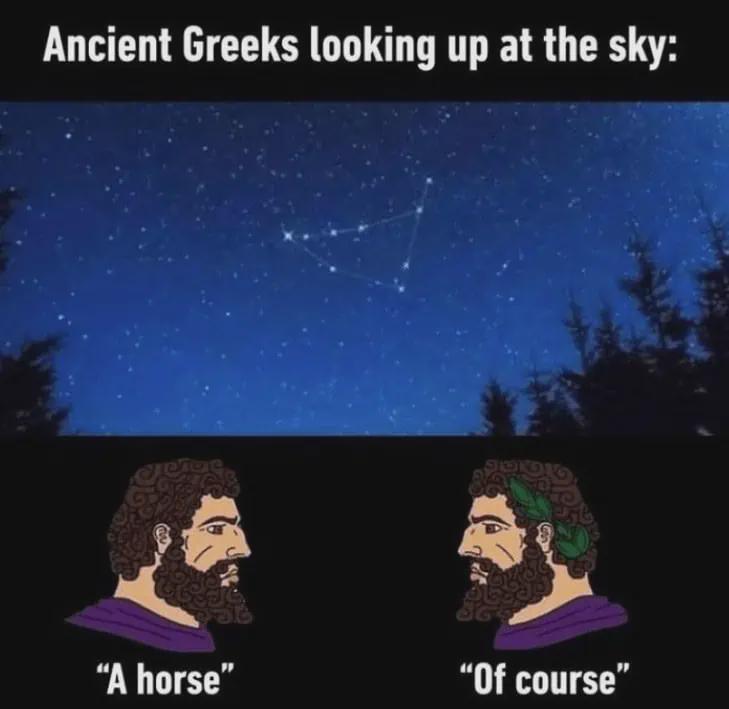Flying was humanity's "impossible" dream until someone decided to just wing it! Daedalus, the OG engineer, built wings from wax and feathers to escape imprisonment—basically the ancient Greek version of a jailbreak with DIY hardware. The meme perfectly captures that desperate engineer energy we've all felt—when the deadline's tomorrow and you're thinking "these mechanical wings strapped to my arms are TOTALLY gonna work!" Sure, his son Icarus flew too close to the sun and crashed spectacularly (history's first documented beta testing failure), but hey—innovation requires risk-takers! Next time your experiment fails or your code won't compile, channel your inner Daedalus. Sometimes the most brilliant solutions come when we're backed into a corner with nothing but feathers, wax, and audacity!


 Academia
Academia
 Ai
Ai
 Astronomy
Astronomy
 Biology
Biology
 Chemistry
Chemistry
 Climate
Climate
 Conspiracy
Conspiracy
 Earth-science
Earth-science
 Engineering
Engineering
 Evolution
Evolution
 Geology
Geology











